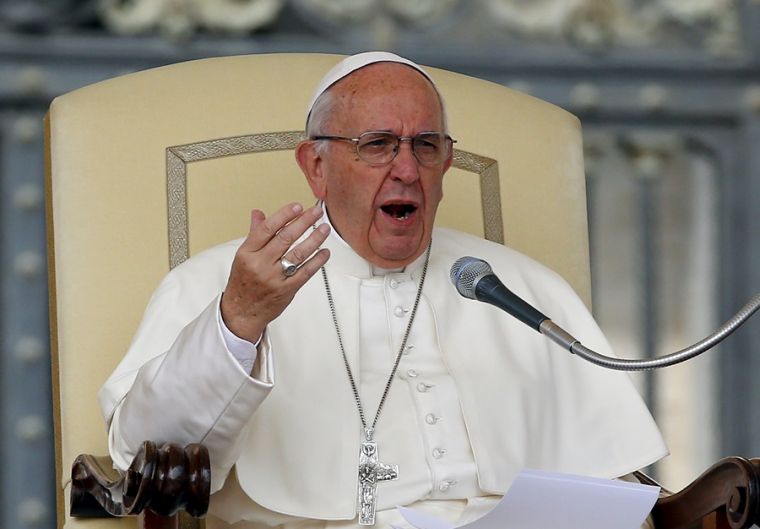Is Pope Francis right to say Christians face an 'educated persecution'?

Pope Francis yesterday warned against what he called an "educated persecution" of Christians.
At his daily morning Mass at Santa Marta in the Vatican, he remarked: "There's a persecution of which not much is being said." This persecution is "cross-dressed as culture, cross-dressed as modernity, cross-dressed as progress".
He said this persecution occurs not when a person "confesses the name of Christ, but for wanting to have and to manifest the values of a Son of God".
"We see every day that the powerful countries create laws that force us to go through this path... a nation that doesn't follow these modern laws, these cultures, or that at least doesn't want to have them in its laws, is accused, is politely persecuted."
"It's a persecution that robs man of his freedom, even from conscientious objection!" he added.
There are other kinds of martyrs too, Francis said, referring to those who died in the Easter bombings in Pakistan. Both are demonic. "And when the powers want to impose attitudes, laws against the dignity of the Son of God, they persecute and go against the Creator, against God. It is the great apostasy," he continued. "So the life of Christians continues with these two persecutions. The Lord has promised us He will not abandon us."
The bloody persecutions of Pakistan or Syria are clear enough. But what exactly does he mean by the "educated persecution" "crossed-dressed as modernity, cross-dressed as progress"? He doesn't say, though he has given hints in the past of what he means. Francis believes in the necessity for human beings to be able to follow their consciences. He is humane and personally tolerant, but he doesn't see why Catholics should be expected to conduct same-sex marriages or facilitate abortions. He wrote in his exhortation after the Synod on the Family, Amoris Laetitia, about the wrongness of attaching liberalising conditions to the delivery of international aid.
His thesis is that there's a secular, liberal orthodoxy emerging that's as dogmatic as the Church's ever was. But whereas now the Church will argue for freedom of conscience (it hasn't always done so, of course) this secular orthodoxy takes it for granted that it is entitled to define right and wrong, and will give very little quarter to anyone who dissents. Hence Francis' comments about persecution: it is "educated" – its weapons are polite exclusion, ridicule and the law, rather than the rack and the thumbscrew – but it is not disposed to compromise.
Sadly enough, he can muster a lot of evidence on his side. There is a climate of hostility, more pronounced in some countries than in others, toward religion.
Christians do fall foul of legislation designed to impose a moral conformity on citizens. In Belgium, for instance, Catholic hospitals are facing a battle over attempts to force them to carry out euthanasia.
Other Christians see persecution where there isn't any, and fail to realise that Christians have lost their spiritual monopoloy and have to learn to get along on equal terms with those who don't share their beliefs.
In a perfect world, Christians could manifest their beliefs as freely as possible, accepting certain limitations, and secularists would acknowledge that Christians shouldn't have to atone for their historic privilege by being barred from the public square entirely. No one would try to impose their ideology on anyone else. People would be given the maximum of personal freedom.
In practice we're a long way from that and a new consensus has yet to emerge. So yes, some Christians are facing an educated persecution, and the Pope makes a very valid point.











